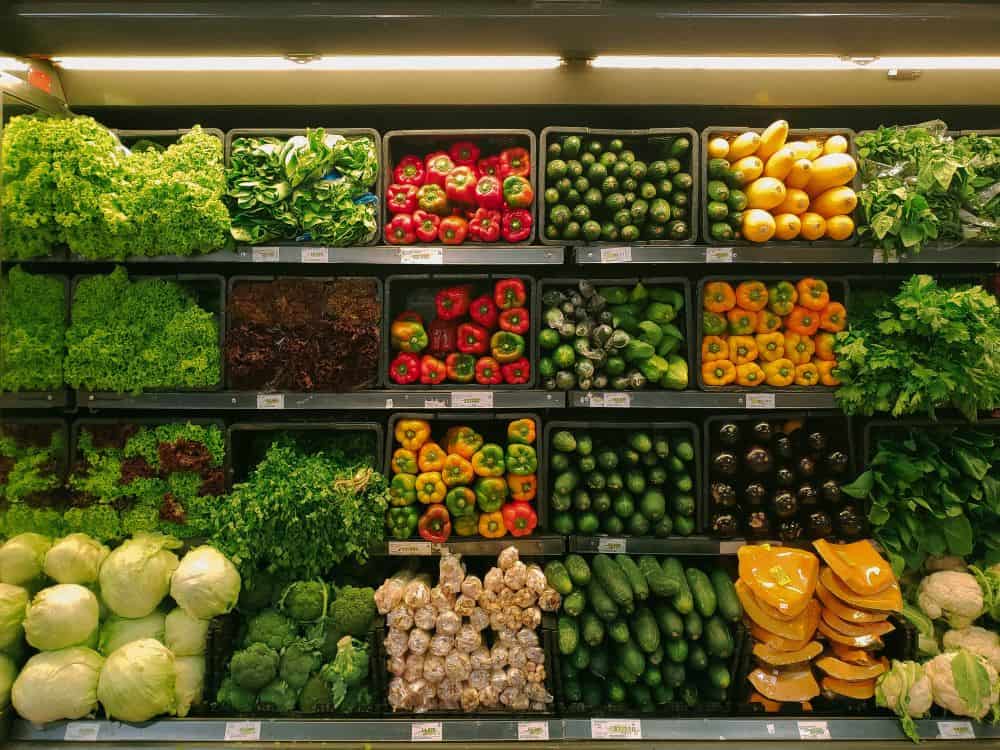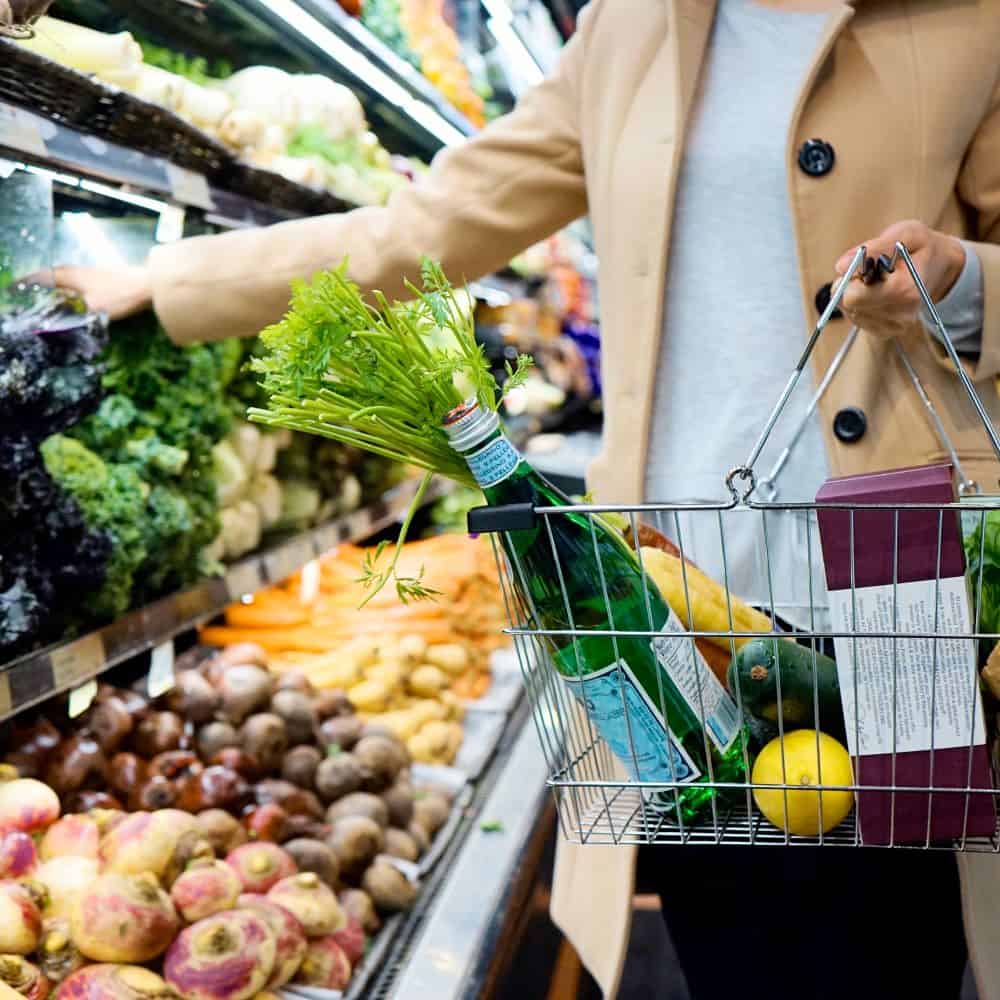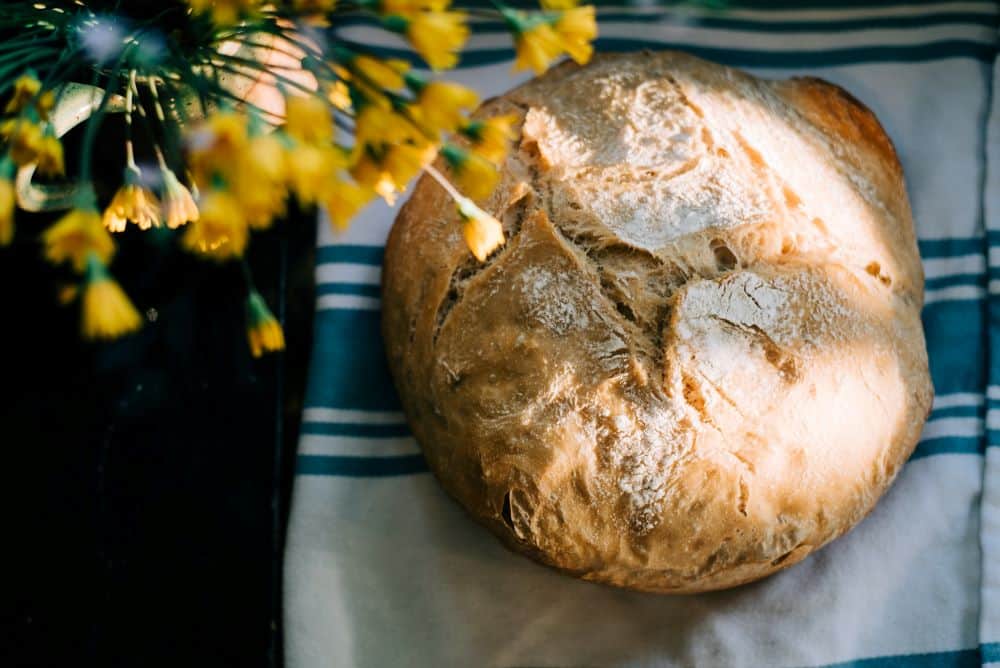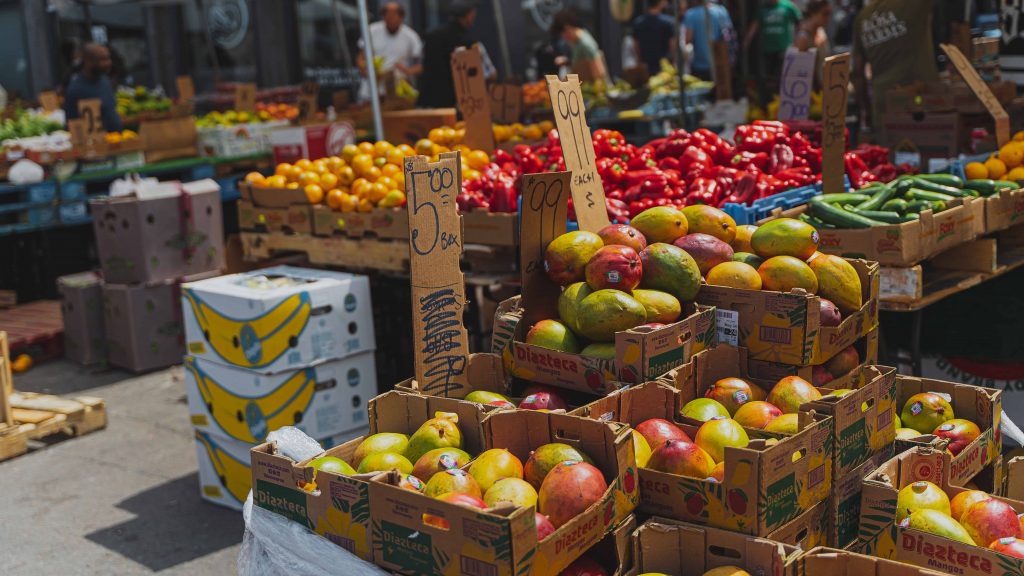
If you recently moved to Boston, you might be wondering where and how to manage grocery shopping in a major city without conveniences like a car. It can be overwhelming to navigate the different regional grocery chains and figure out where to shop. Today we’ll dive into which New England grocery stores give you the best bang for your buck. We’ll also talk about practical tips like how to shop without a car and how to save time at the store.
How do I grocery shop in a walking city?
If you’re like me, you didn’t bring a car to Boston. It’s a super walkable city with public transportation access to most places. But if you’re used to bulk grocery shopping with your car every few weeks, you might be wondering how to manage groceries on foot.
One option is to grocery shop weekly for smaller amounts of food. To help myself not grab too many items in one trip, I use a handbasket in the store, rather than a cart. If I can’t fit everything into one handbasket, I know it’s too much stuff to walk home with. For bulkier pantry items you buy less frequently (like rice or flour), it can be worth the money to pay for an Instacart delivery every once in a while. If you order those bulk items from a store like Aldi or Walmart in the suburbs, the price will be lower than a grocery store in the city, which helps rationalize that delivery fee.
Another option is to get yourself a foldable cart. That way, you can load up on groceries and still get home. If you don’t have time to grocery shop weekly, this might be the best option for you.
Where are the best prices?
Since moving to the city, you’ve probably seen signs for Shaw’s, Stop & Shop, Star Market, and Market Basket. I’m originally from Ohio, and all of our regional grocery stores with “Market” in the title were the most expensive, so when I moved to Boston, I just assumed Market Basket would be pricier than everywhere else. I assumed wrong! Market Basket actually has the lowest grocery prices I’ve found in the city.

Don’t confuse Market Basket and Star Market, though. Star Market, Shaw’s, and Stop & Shop are all more expensive grocery store chains. If you live in Somerville, Chelsea, or Revere, you’ve probably got a Market Basket within walking distance. To get to Market Basket from another Boston neighborhood, you may need to take a bus.
If getting to a Market Basket is too difficult, you might see if there’s a Price Rite near you. They have comparable prices to Market Basket and offer locations in Revere and Dorchester.
Another great option is Trader Joe’s. There are Trader Joe’s in Allston and Brookline, so if you live in those neighborhoods or live near the MBTA Green Line, this may be the best grocery story option for you. At Trader Joe’s you’ll find very reasonable prices and high quality items. The one downside of Trader Joe’s is that they don’t have the large selection of a typical supermarket, but what they do stock is always top quality.
How do I grocery shop on a tight budget?
Graduate school can be financially stressful, and grocery shopping is one more expense to worry about. If you’re struggling to make ends meet, check out the state of Massachusetts’s Find Food Assistance page. This is a helpful tool to find out what kind of public assistance you might qualify for.
A common food assistance program that you might qualify for is the Supplemental Nutrition Assistance Program (SNAP). If you meet eligibility requirements, SNAP benefits will give you a set amount of money per month to use on groceries. The application process is pretty straightforward, and once you qualify, you’ll receive an EBT (Electronic Benefits Transfer) card in the mail that you can use at participating stores.
All major grocery stores in Massachusetts accept EBT, and you can even use EBT for snacks from places like CVS or 7/11. Many vendors at farmer’s markets also accept EBT, so you can also use this money for fresh fruits and veggies.
If you don’t qualify for any kind of financial assistance, you might try recipes that use low-cost ingredients. For example, rice and beans, rice skillets, and vegetarian pasta dishes are typically on the lower price end. You can also pinch a few pennies by making things from scratch rather than pre-made. You can make your own bread pretty easily for a fraction of the cost in stores, and cooking your own beans is way cheaper than buying canned. These are all small things, but they add up to save you some money and stress.
How do I cut down on time spent grocery shopping?
Grocery shopping can be time-consuming. Sometimes it can take a while to find what you need and compare prices.

To save time, try arranging your grocery list by aisle or food group. Most grocery stores group their items by produce, shelf-stable, baking, and dairy products. To avoid circling back for an item in an aisle you already passed, it can help to group items on your list by where different items are located. This is easier to do once you’re more familiar with your grocery store’s layout.
If you use your phone to make your grocery lists, Google Keep can help you check off items that you’ve found so that your list only shows the items you still need. You can also use an old-school list, bringing a pen and paper with you. When you find an item, you can scribble it off your list so that it’s easier to see which items you still need.
Another idea is to grocery shop during the week when fewer people are out and about. This reduces the likelihood of items being out of stock, plus it cuts down on the time you spend weaving between people’s carts. If your only free time is on the weekends, try getting to the store early in the morning or late in the evening; these are also less popular grocery shopping hours.
Hopefully, this post has helped you feel a bit more aware of your grocery shopping options in Boston. If you have more tips for grocery shopping in Boston, be sure to leave a suggestion in the comments section! For more insights on city living, be sure to check out our Boston Tips & Activities blog page.



SavePlus
These practical tips are a lifesaver for city grocery shopping! Using a handbasket to avoid overloading and considering foldable carts for bulkier items are smart strategies.